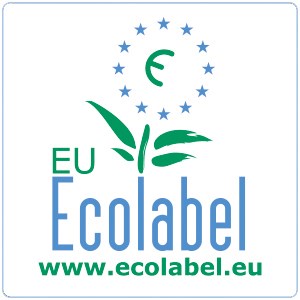Eco friendly cleaning myths debunked......

As a company that put the environment at the heart of every thing we do, we take quality control very seriously. We sample every product, test it thoroughly, but importantly with the eco friendly range we ensure that this product has been tested by the relevant organisations to confirm the ingredients in these chemicals are not toxic. We do this by making sure that our Eco Friendly Range is approved by the EU Ecolabel Council, and this certifies that this product which carries this label has a guaranteed, independently verified low environmental impact.
As a family friendly, and environmentally conscious business we choose to stock Eco Friendly Products, because they benefit both the earth and our families.
What does “Eco-Friendly” Mean?
This term simply describes a product that is not harmful to the environment. However, it can get more complicated than that, as there are many factors of something that might be “harmful to the environment.” So many different things can negatively influence the environment, such as not using proper procedures when disposing of products. However, there are many benefits to using eco-friendly products that are not simply centred around the health and well-being of the Earth, but also the health and wellbeing of your family.
How to tell if a product is in fact "Eco Friendly"
Although many companies and their products promise to be eco-friendly, as I've said before the cleaning and hygiene sector is guilty of using phrases which can be taken out of context and they can misconstrue their information, leaving consumers confused and often blindly buying their products. When shopping for eco-friendly products, look out for the EU Ecolabel logo on packaging.
This EU Ecolabel can be found on not only liquid chemicals, but can also be found on paper products too. Most of our paper products are EU Ecolabel, and are certified low impact on the environment.
With all this being said, there are alternative, home made recipes for your cleaning products, so I wanted to take this opportunity to clarify some of them!
-
No matter how many times your favourite influencer tells you to mix them in a solution, vinegar and bicarbonate of soda will cancel each other out. It is basic chemistry - you will be cleaning with saltwater
-
Switching to plant-based cleaners doesn’t mean you have to clean your house with vinegar (you can if you want but you don’t have to). I rarely use vinegar in my home because I don't like the way it smells
-
You can still be green without making products from scratch
-
Your house can be clean and disinfected without chlorine bleach, however you do need a BS EN 1276 cleaner, which can never be Eco-Friendly
-
Your toothbrush pot, kitchen sponge, and keyboards are dirtier than your toilet
-
A stronger fragrance is not necessarily a good thing. They are traditionally used to cover up the bad smell of synthetic ingredients, like surfactants made from fossil fuels
-
There is an abundance of terrible advice about essential oils on the internet. Essential oils are extremely potent and should be used with caution (and maybe even avoided if you have kids or pets)
-
Unless it’s an allergen, cleaning brands do not have to disclose their ingredients or their fragrances making it hard for consumers to know who to trust - even “eco” brands.










